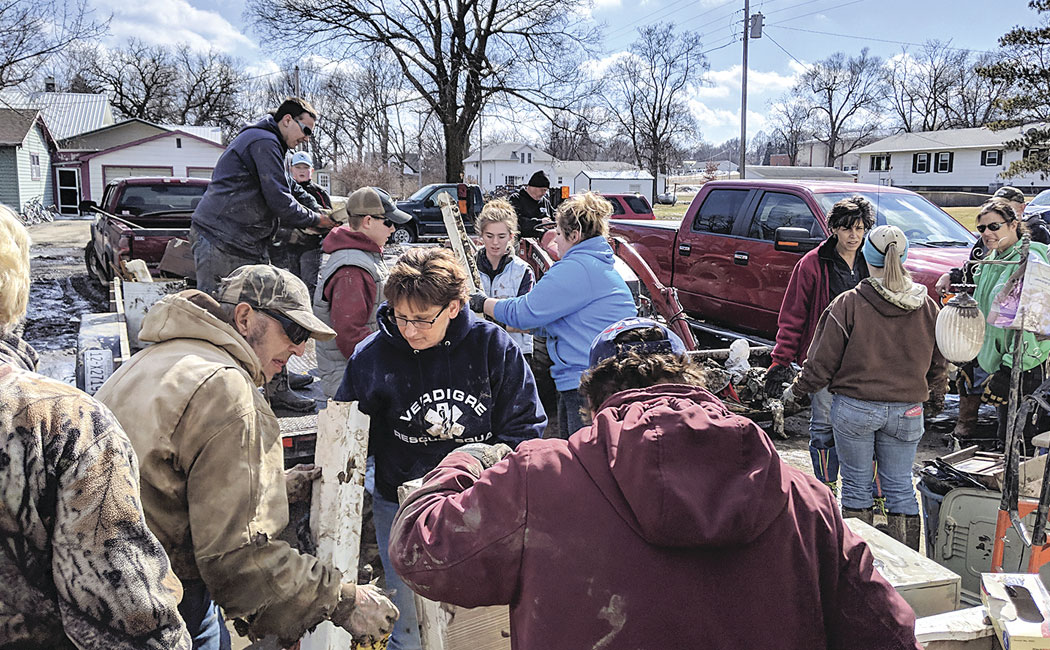
Exploring ways to help those who help others in the wake of natural disasters
10 Dec 2020
In March 2019, 81 of Nebraska’s 93 counties were declared states of emergency due to significant flooding and blizzards. Nebraska Extension provided vital assistance to communities during the state’s disaster response and recovery, and continues to offer a lifeline for many struggling to cope.
More than a year and a half later, as the ripple effects of the crisis continue, stress levels for frontline caregiving professionals remain elevated.
Extension employees have a wide array of tools with which to help communities after natural disasters such as wildfires, tornadoes and other severe weather events. But the resources and tools they have to address their own emotional well-being after such disasters are far fewer.
A group of Nebraska researchers is working to change that for Extension personnel throughout the United States.
Holly Hatton-Bowers, assistant professor of child, youth and family studies, is the program director of a national project funded by the U.S. Department of Agriculture and housed at CYFS, focused on identifying ways to support the wellness of Extension employees following a natural disaster. She and her team are developing an online platform to help the broader Extension community learn practical coping strategies and access their wellness.
“Sometimes we forget about the helper,” said Hatton-Bowers, a CYFS research affiliate. “People supporting communities during and after natural disasters need effective ways to support their well-being, too.”
Because natural disasters usually occur with little warning, they can leave a trail of destruction that results in significant financial and material losses to individuals and communities. People exposed to such hardship often experience psychosocial problems such as post-traumatic stress disorder (PTSD), depression and anxiety.
College of Education and Human Sciences